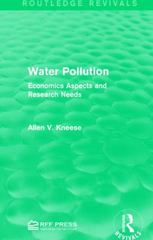Question
Question 1 Read the below excerpt from a Sydney Morning Heraldarticle.Alcohol, cigarette use down: The budget hit that will affect all taxpayersBy Shane Wright, Sydney
Question 1
Read the below excerpt from a Sydney Morning
Heraldarticle.Alcohol, cigarette use down: The budget hit that will affect all taxpayersBy Shane Wright, Sydney Morning Herald, 4thJuly 2021https://www.smh.com.au/politics/federal/falcohol-cigarette-use-down-the-budget-hit-that-will-affect-all-taxpayers-20210702-p586al.html
Tumbling rates of smoking, a drop in alcohol consumption and the rise of electric vehicles will punch a hole in the federal budget worth tens of billions of dollars and force the slack to be filled by ordinary taxpayers.There are already signs the sharp increase in cigarette excise over recent years, aimed at encouraging people to give up tobacco use, is hitting the budget with revenue falling more than $2 billion short of expectations in a single year.Tumbling rates of smoking, a drop in alcohol consumption and the rise of electric vehicles will punch a hole in the federal budget worth tens of billions of dollars and force the slack to be filled by ordinary taxpayers.There are already signs the sharp increase in cigarette excise over recent years, aimed at encouraging people to give up tobacco use, is hitting the budget with revenue falling more than $2 billion short of expectations in a single year.It follows years of large increases in excise, by both sides of politics, cigarette plain packaging and a change in the timing of excise collection that delivered a one-off $3.2 billion increase in excise in the 2019-20 financial year.These increases had made tobacco excise the fourth largest individual tax collected by the federal government at an estimated $15 billion last financial year. The Commonwealth collects more in tax on cigarettes than on superannuation ($11.7 billion), fringe benefits tax ($3.9 billion) or petrol excise ($5.9 billion).But tobacco consumption has cratered over the past two years, in part due to the excise increases. In the 12 months before the COVID-19 pandemic it fell by 12.8 per cent while over the past year it has fallen by another 11.1 per cent.This is eating into revenue expectations. Pre-COVID, the government was expecting to collect $16.5 billion in tobacco excise in 2021-22. Now, it is expecting $14.8 billion.
Sketch a demand a supply diagram showing what happens when a new tax is levied on any product, such as cigarettes. (Don't worry about the exact numbers.)
b)Does a tax in general reduce the consumption of the product?
Explain.c)Who are the winners and losers from a tax? What is the Deadweight Loss
?d)Some people argue that since cigarette smokers are addicted they will not change their cigarette consumption. Draw a diagram like in a), but now assuming that consumers have perfectly inelastic demand (a completely vertical demand curve) for cigarettes.
e)Who bears the burden of the tax now? Has this changed
?f)
Discuss how the elasticity of demand of cigarettes would berelated to the potential to achieve health outcomes from the tax, the potential to raise tax revenue, and the deadweight loss of the tax.There is evidence that demand issomewhatinelastic
Step by Step Solution
There are 3 Steps involved in it
Step: 1

Get Instant Access to Expert-Tailored Solutions
See step-by-step solutions with expert insights and AI powered tools for academic success
Step: 2

Step: 3

Ace Your Homework with AI
Get the answers you need in no time with our AI-driven, step-by-step assistance
Get Started


